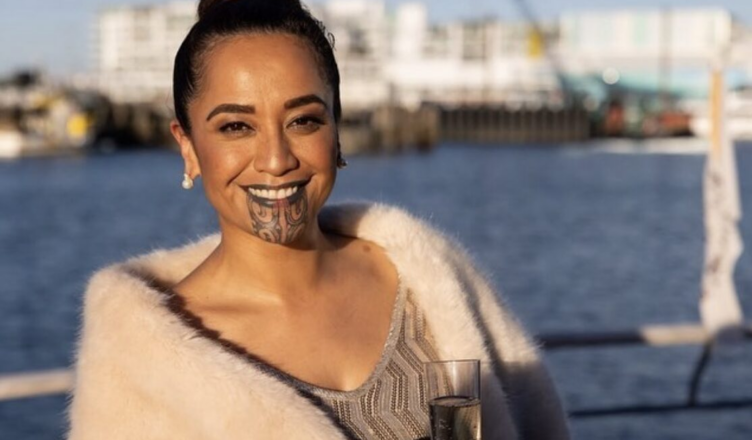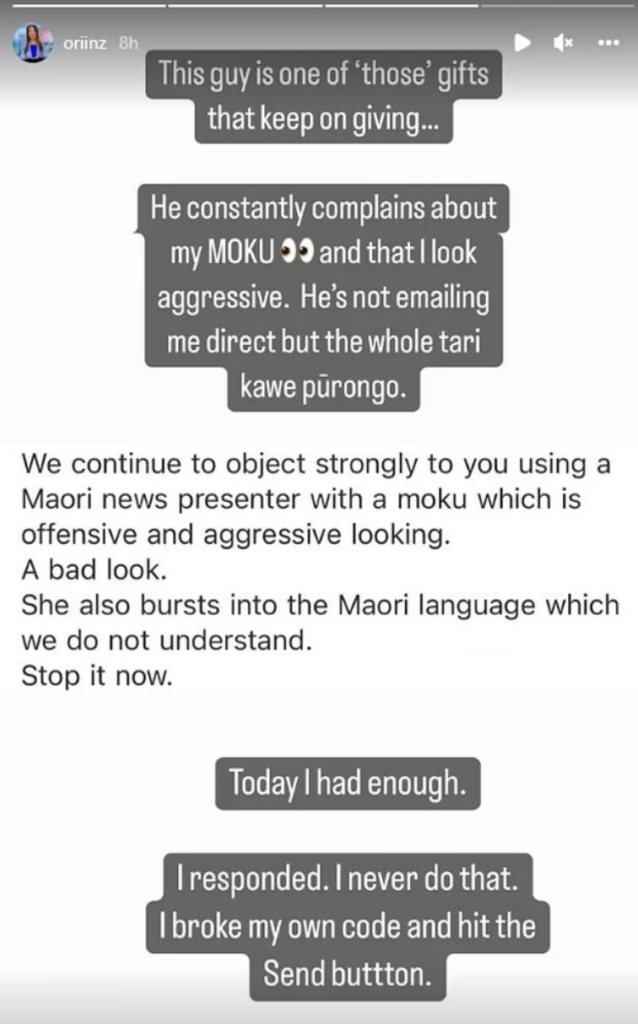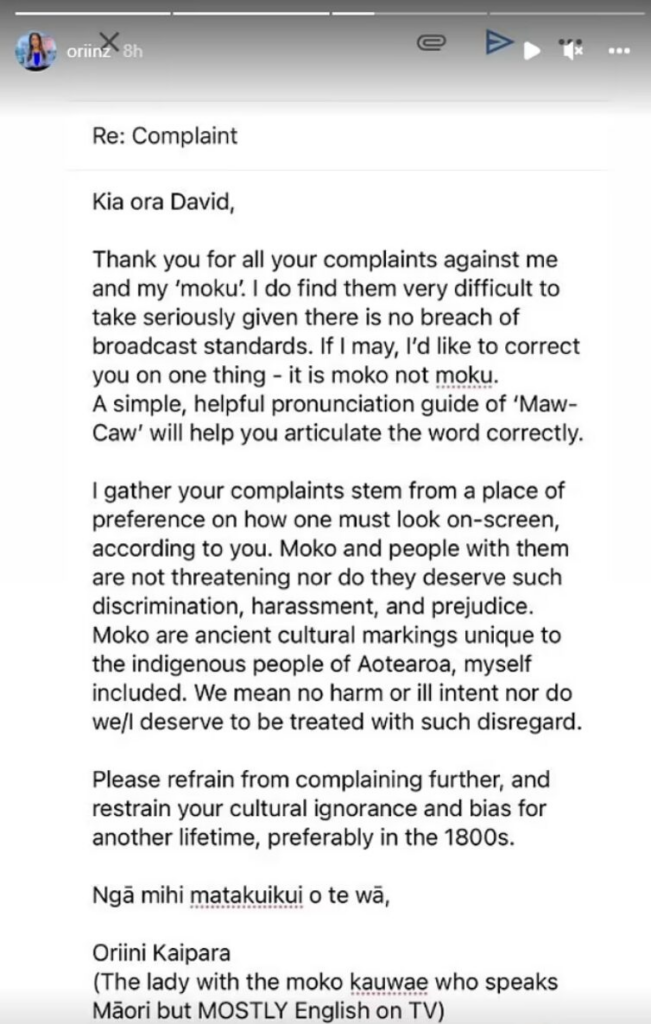Reaffirming pride in her cultural history and identity, a television presenter adorned with a traditional Māori face tattoo replied to troll insults with grace.
Online discussions on facial tattoos are frequently sparked by these images. While some people believe that tattoos should only be applied to the body, others support the cultural value of these images.
Trailblazing TV presenter Oriini Kaipara, 41, made history when she started as a newsreader at New Zealand’s Newshub. She was the first to give a primetime TV news bulletin while wearing a moko kauae, a traditional marking worn by Māori women.
Māori, the native Polynesian population of New Zealand’s mainland, view moko kauae as deeply significant markers of their history and identity. Usually placed on the lips and chins, these face tattoos recognize a woman’s heritage, rank, and abilities while also signifying her leadership in her society and familial relationships.

But in the middle of all the praise, a viewer named David sent Newshub an email expressing his displeasure with Kaipara’s moko kauae.
According to the Daily Mail, he wrote, “We continue to object strongly to you using a Māori newsreader with a moku [moko], which is offensive and aggressive looking.” “An unflattering glance. She also speaks incoherently in Māori, which is not our language. Now stop it.
Despite David’s derogatory comments, Kaipara bravely confronted the matter head-on, posting pictures of the messages on her Instagram story and answering in a classy and respectful manner.
“I’d had enough today.” I answered. I never act in that way. She uploaded a screenshot of David’s message to her Instagram account along with the caption, “I broke my own code and hit the send button.”

Additionally, Kaipara published her email exchange with David in which she stated that, “given there is no breach of broadcast standards,” she is unable to consider David’s complaint seriously.
She also took pains to fix his spelling of “moko,” since David had called hers “moku.”
“I gather your complaints stem from a place of preference on how one must look on-screen according to you,” Kaipara wrote in her email. Moko and those who are with her are not dangerous, and they are not deserving of this kind of intolerance, harassment, or discrimination.
She went on, “We don’t mean any harm or ill intent, and neither do we/I deserve to be treated with such disregard.” “Please stop whining and hold off on expressing your cultural ignorance and bias until a later time, ideally the 1800s.”

Even after David’s critical remarks, Kaipara quickly clarified that the majority of her responses are positive and that nasty trolls are rare.
Kaipara discussed the need for more Māori advocates in an interview with the New Zealand Herald immediately after she addressed David’s complaint. She said, “The fact that my existence triggers some people is testament to why we need more Māori advocates in key roles across every sector.”
Overall, Kaipara’s poised reaction is a striking reminder of the value of cultural pride and fortitude in the face of hardship; moreover, she is encouraging others to embrace their identities fearlessly and confront prejudice.
How do you feel about this tale? Tell us in the comments below!






